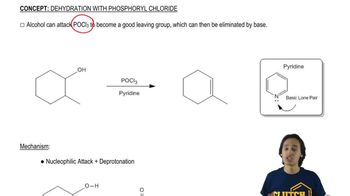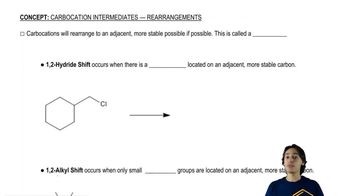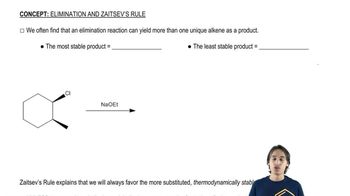Predict the major products of dehydration catalyzed by sulfuric acid.
(a) hexan-1-ol
(b) hexan-2-ol
(c) pentan-3-ol

 Verified step by step guidance
Verified step by step guidance Verified video answer for a similar problem:
Verified video answer for a similar problem:



 6:01m
6:01mMaster General features of acid-catalyzed dehydration. with a bite sized video explanation from Johnny
Start learning